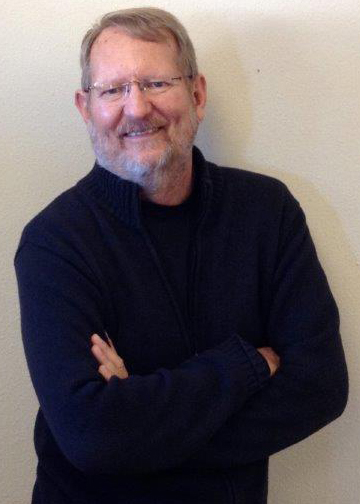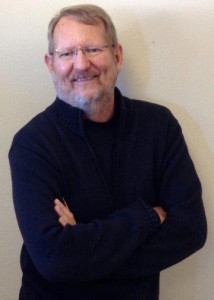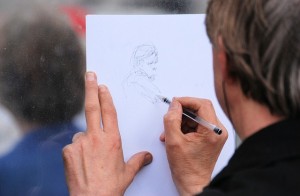
Contributor: Bob Howell M.Ed., LCDC, CRT, Clinical Hypnotherapist, EMDR Trained, Director of Trauma Services for the Ranch at Dove Tree
What drew you to the field of addiction treatment and why?
 I am in recovery myself. Thirty years ago this year, I was a broken man, shipwrecked on an island, mapped by isolative despair. There was a penetrating darkness about me and the ruinous weight of my addictions banished me to places absent of hope.
I am in recovery myself. Thirty years ago this year, I was a broken man, shipwrecked on an island, mapped by isolative despair. There was a penetrating darkness about me and the ruinous weight of my addictions banished me to places absent of hope.
I surrendered to the disease, falling without a net toward anything that might lift my misery. And people loved me when I had nothing to give back.
A doctor friend I worked with left his duties in the Emergency Room where we both worked and pushed me in a wheelchair toward the Chemical Dependency Unit at St. Mary Hospital.
My life has never been the same. I wanted to give back something of what was so freely given to me.
What keeps you in this work, day after day?
Every day I see people change. Faces creased with sorrow begin to reflect daylight rather than deflect it. Stooped postures, bent toward the gutter, become inflated and hands stretch upward to the heavens, lungs bellowing out songs, corrupted with the promise of new beginnings.
There is a peculiar, effervescent light about the recovering person-it’s from the inside out and the sun itself is jealous of its vibrancy. There is no make-over on earth that can compare to such transformations.
What is your philosophy on addiction treatment?
 Years ago I heard a priest named Father Joseph Martin say this in response to the question of how far do you go to help someone struggling with an addiction. His reply: “As far as you can and one step more”. There is something both poetic and commanding in that for me.
Years ago I heard a priest named Father Joseph Martin say this in response to the question of how far do you go to help someone struggling with an addiction. His reply: “As far as you can and one step more”. There is something both poetic and commanding in that for me.
I typically tell clients who begin the journey back and are sitting in front of me, “I will never quit on you”. Treatment, for me, should be both a providing of tools that sustain recovery, but also an illumination within the individual of tools already present within them.
There is a need to address both the disease of addiction itself as well as the accompanying fractured pieces of life that contribute to it, that light it up.
It is my belief that to not address co-occurring disorders such as depression, anxiety, trauma and abuse, disordered eating patterns etc. is neglectful and does not adequately prepare the person to go out and deal with life again.
There will be an eventual erosion of the individual’s recovery structure if treatment does not address these areas should they exist.
I like the recovery concept of the 3 legged stool with the legs representing: Higher Power, self, and others. The implication is that there is typically a spiritual component to recovery; that the individual is expected to do their own recovery work; and that the support and guidance of others via sponsorship, recovery meetings, and new healthy relationships all contribute to bolstering recovery.
Amidst struggle, I often ask a client (or myself) to explore if one of those 3 areas is being neglected.
The depth and breadth of activities and types of groups has never been richer than it is now and it continues to grow.
What tools would you like your participants to gain while working with you?
 I was talking to a fellow counselor about this very thing this morning. Out of that conversation emerged a few points that, for me, have great validity, that is to say they ring true with my internal compass. One thing I would hope to convey is an increased capacity to tolerate emotional distress or discord (to be alright with some degree of internal disharmony without using a drug to soften it).
I was talking to a fellow counselor about this very thing this morning. Out of that conversation emerged a few points that, for me, have great validity, that is to say they ring true with my internal compass. One thing I would hope to convey is an increased capacity to tolerate emotional distress or discord (to be alright with some degree of internal disharmony without using a drug to soften it).
Out of such internal conflict is born growth. This is reminiscent of the old axiom: “Pain is our greatest blessing”, implying that we have the capacity to move through and not around, the great sources of distress in our lives.
Another area of value for me is the ability to experience life and it’s relationships in a fuller, unguarded way. Dialectical Behavioral Therapy with its roots in Buddhist traditions seeks to instill this notion of being present to life without attachment to a reactionary mode of being.
The term “mindfulness” swims in these waters as well as does “self-awareness”. Yet another area that I see as beneficial to the recovery process is the relationship with a Higher Power as opposed to a sole reliance on self or even total reliance on a group.
I referred to this in another question as parts of the 3 legged stool of recovery. For me there are times when no human power can fully understand the depth of my current anguish or help me to interpret it, make sense of it for me…. And at these times I turn to the power that created that bruised and battered heart, my Higher Power.
This is a very personal view, and while others do not place the same value on it, I find great uplifting and healing in this vein of reaching out. The notion of resiliency (hot buzz word these days) captures much of what I wrote above- a flexibility, an adaptability, an immersion into present experience without the need to react to it.
What do you envision the future of addiction treatment to be like?
 Well, it’s exciting to think about it. Science is finally taking a harder look at addictions, specifically how they arise, who is prone to them, and what are the solutions to either managing it better or even eliminating it.
Well, it’s exciting to think about it. Science is finally taking a harder look at addictions, specifically how they arise, who is prone to them, and what are the solutions to either managing it better or even eliminating it.
That last piece sounds far-fetched, but in the January/February issue of Scientific American Mind, author Carrie Arnold writes cogently about the proposed emergence of vaccines to treat addictions. A vaccine for cocaine has seen success in early human trials.
Neuroscientist George Koob, who now directs the National Institute on Alcohol Abuse and Alcoholism, proposed creating such a vaccine 25 years ago and we appear on the cusp of powerful inroads here. The concept of addiction as a disease is still not universally accepted, but certainly more so than ever before.
Since over 30 million Americans struggle with ongoing problems with alcohol and/or other drugs, to not continue to research and treat one of the most devastating illnesses on the planet is abundantly inhumane. Let’s all get involved-like it or not it will touch all of our lives either directly or indirectly via its impact on friends, colleagues, and love ones.
The opinions and views of our guest contributors are shared to provide a broad perspective of addiction. These are not necessarily the views of Addiction Hope, but an effort to offer discussion of various issues by different concerned individuals.
Last Updated & Reviewed By: Jacquelyn Ekern, MS, LPC on January 15th, 2015
Published on AddictionHope.com
